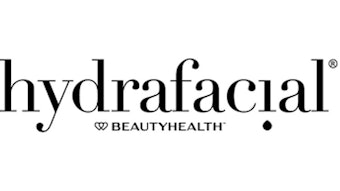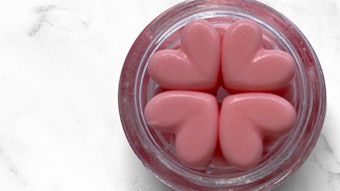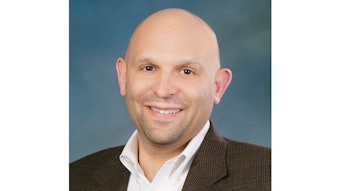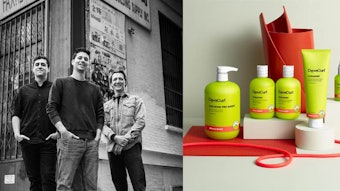- A survey conducted by Datamonitor in August 2010 notes 44% of Americans agree they are spending more on private label products than they were a year ago.
- Though private label brands are growing in quality and awareness, national brands are still most recognized in terms of quality and loyalty.
- Younger consumers are more willing to try different brands, including private label options.
- National brand manufacturers may also become more interested in developing their own private label options to create products on behalf of retailers.
A global Datamonitor consumer survey conducted in August 2010 found that 44% of U.S. consumers either tend to agree or strongly agree that they are spending more on private labels than they were in 2009. This data has significant implications for personal care products. Private label purchases might initially be motivated by a desire to save money, but, once purchased, many consumers find the quality of these products comparable to more expensive, branded equivalents. In fact, 66% of consumers in the global survey felt private label grooming products are at least as good as well-known, market-leading brands—which could be of concern to national and global brand owners pushing quality credentials.
Under these circumstances, these brands are going to have to work harder to differentiate their products if they want to win back consumers who have experimented with private labels during belt-tightening times.
Changing Private Label Perceptions
The downturn has undoubtedly had a major effect on private label popularity, but this is not merely a recession-driven phenomenon. In many developed markets, private labels were already highly structured and sophisticated before the onset of the global economic crisis.
While brand owners can expect some consumers to migrate back to national brands when economic conditions improve, it is anticipated this will likely not be enough to offset the gains private label has made in many personal care categories.
The growth in private label across sectors is one of the most pervasive trends influencing consumer packaged goods; trust in private labels is stronger and brand choice is greater than ever.
Historically, private labels were simply positioned as lower-cost alternatives to name brands. Now, in many instances, private label quality has reached parity with national brands, and private labels are delivering above consumer expectations.
Product ranges have also dramatically improved. Private labels can no longer be lumped together as cheap substitutes. They range from basic, no-frills generics to premium, highly specialized “destination brands,” such as Boots No.7 in the U.K. Many retailers also now offer a wide range of private label options covering the entire quality spectrum, giving consumers more choices within the private label category itself.
Even more interestingly, the notion that private labels simply follow in the footsteps of national brands is becoming outdated, too. In some cases, retailers are even leading the way in bringing innovation to consumers. Walmart, for example, launched Fat Foam, a no-drip hair coloring product based on Japanese technology, in September 2010, beating national brands to the market by half a year.
Michael Smith, senior buyer for hair care and color at Walmart, commented that the retailer “wanted to bring [Fat Foam] forward and use our scale and our marketing muscle to bring it early to the U.S.” Doing so signifies a real commitment to using private labels preemptively rather than solely as a means of competing using similar products and formulations at a lower cost.
Press Home Differentiation
Between 2004 and 2009, private label personal care products enjoyed a 6.6% year-on-year growth across the 20 countries surveyed by Datamonitor. With increasing efforts being made to innovate and compete on quality and not just price, national brand owners can no longer sit back and expect their brands to outperform private label products in their categories.
Feminine care products are expected to make the biggest gains in the personal care space during the coming years, with a forecasted 12.6% annual growth between 2009 and 2014. This will mean shrinking market share for national brands in this space.
Additionally, this points to a key trend in private label personal care: Consumers are more willing to purchase certain private label items than others. Feminine care products and oral hygiene, for instance, fare better than fragrance and hair care products. In fact, a Datamonitor consumer survey in May 2009 found fragrances and facial skin creams enjoy a greater amount of brand-consciousness among consumers than any other personal care items.
Personal care brand owners can take some comfort from this. Although private labels are undoubtedly growing in popularity, the perception that branded products are of a better quality still persists. And even with shrinking market share, national brands dominate their categories.
National and global brand owners can also take comfort from the probability that they will have a slightly easier time staving off the private label threat than their counterparts in food and groceries or household care. There is more of an emotional attachment to personal care purchases than in these other categories, meaning consumers will always feel the need to “treat” or “pamper” themselves with their favorite premium-branded products. Retailer brands and private labels have to work very hard to elevate their products to this status, although it is possible.
To Enter or Not to Enter?
To counter the quality perception gap, some retailers are beginning to co-brand their products or secure celebrity endorsements as a way of enhancing private label ranges. Beauty retailer Sephora notes its LVMH connection in releasing an exclusive range called Sephora Favorites, a collection that includes a number of upmarket samplers—including the Give Me Some Lip Valentines Day Gift Set and the LashStash Mascara Deluxe Sample.
The younger consumer segment is another important element in the battle between private label and national brands. The 20-something crowd exhibits a slightly stronger willingness to experiment with private labels, and these younger consumers are less likely to have experienced the prosaic private label offerings of the 1990s and early 2000s—which were characterized by limited range, low quality and bland packaging. Private labels today are far more sophisticated and appealing.
The flip side of this argument, however, is that consumers of this age are also highly brand-sensitive and could migrate back to national brands once economic conditions improve, if brand owners give them a clear reason to do so.
Finally, some brand owners may be faced with a difficult decision over whether to enter the private label space themselves. Private labels actually represent a business opportunity for brand owners that make products on behalf of retailers. For those that do not, private labels are simply indicative of a more competitive environment.
Brand owners, therefore, need to work out how best to counter private labels. After all, brand managers would have a tough job competing against private labels that are cheaper yet also more upscale, merchandized in a more sophisticated manner, are better trusted and are easier to market.
It is a real challenge, but whatever strategy national and global brand owners adopt, they are well advised never to compete on price. No matter how good private labels become, branded personal care products will always enjoy a premium perception and should play to this strength. Focusing on quality and offering genuinely better products with advanced technologies and improved formulas, is the surest way for brand owners to take back lost market share from private labels.
Mark Whalley is a consumer analyst at Datamonitor. His comments and analysis have been featured in a number of publications, including the Financial Times, The Wall Street Journal and Marketing Week. He has also appeared on programs on CNBC and Bloomberg.










